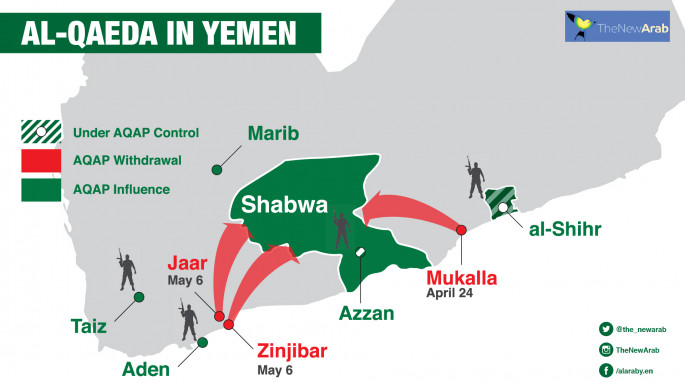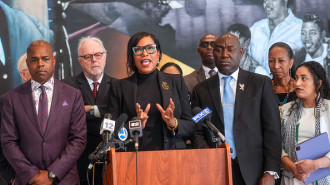US designates IS branches as terrorist organisations
The Islamic State group's affiliates in Libya, Yemen and Saudi Arabia have finally been added to the United States' global terrorism blacklist.
IS' branch in Libya - one of the fastest growing areas for the group - has also been designated as a "foreign terrorist organisation" by Washington, making it illegal for Americans to work, support or conspire with the group.
Branches in Libya, Yemen and Saudi Arabia have been declared as "specially designated global terrorists".
This means individuals linked to the group are now subject to US sanctions and foreign nations linked to the group and pose a threat to the US are liable for prosecution.
The three branches emerged after IS leader Abu Bakr al-Baghdadi announced the formation of its self-described "caliphate" and accepted oaths of allegiance from militants in Libya, Yemen and Saudi Arabia.
IS in Saudi Arabia calls itself the "Wilayat Najd", after
the central desert region and the birthplace of the austere Wahabbi branch of Islam which mant Saudis adhere too.
Fighters belonging to the group are not thought to occupy any territory in this province, but have carried out a number of attacks on Saudi Arabia's Shia population and security officers, and in Kuwait.
Its Yemen branch have carried out attacks, including on two mosques in Sanaa last year killing more than 120 people.
 |
| [click to enlarge] |
IS' Libyan affiliate has been expanding its territories around the city of Sirte rapidly, and believed to be the biggest threat to the US and Europe bar its main Syrian and Iraqi branch.
Militants were blamed for kidnapping and executing 21 Egyptian Coptic Christians, as well as killing other Libyans and African migrants.
Separately, the Treasury Department announced sanctions against six men it accused of providing financial support to terrorist groups.
Washington said the move should disrupt fundraising and support networks for al-Qaeda, its Syrian branch al-Nusra Front, al-Qaeda in the Arabian Peninsula (AQAP) and IS.
"[They target] financiers and facilitators responsible for moving money, weapons and people on behalf of these terrorist organizations," said Adam Szubin, the Treasury's acting under secretary for terrorism and financial intelligence.
One example given was Nayif Salih Salim al-Qaysi who has been an AQAP "facilitator" and distrubuted arms and supplies to its fighters and allied Yemeni tribal forces.
Another targetted by the new sanctions was a man in Libya accused of providing substantial support to IS' affiliate in the Sinai Peninsula and responsibile for moving hundreds of thousands of dollars, as well as weapons and ammunition, from Libya to the Sinai.







 Follow the Middle East's top stories in English at The New Arab on Google News
Follow the Middle East's top stories in English at The New Arab on Google News


